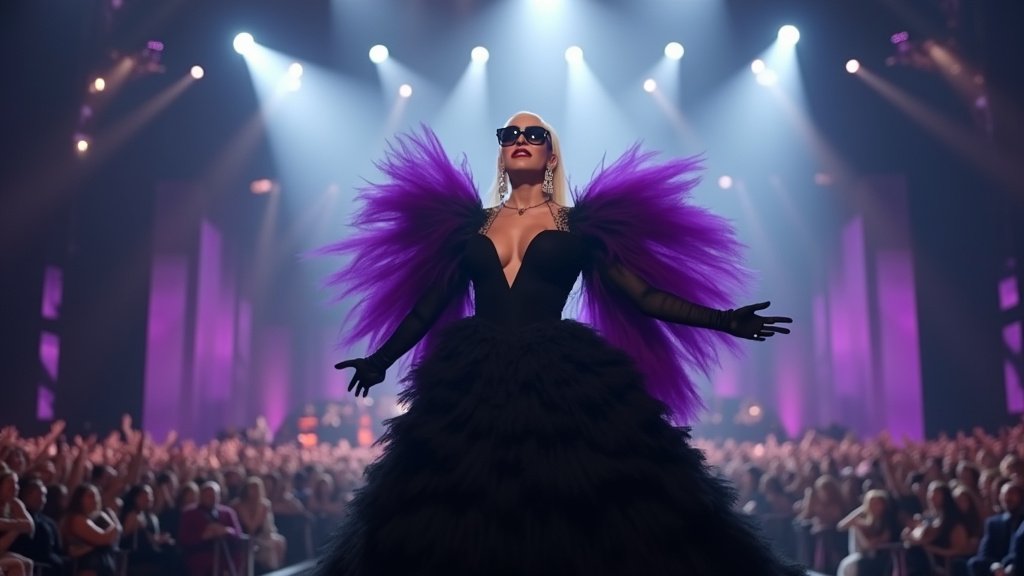In a high-stakes courtroom battle nearing its conclusion, the defense representing music mogul Sean “Diddy” Combs has vigorously argued that their client has been the victim of unfair targeting. The assertion came as part of the closing arguments in the ongoing sex trafficking and racketeering trial that has drawn global attention.
The Defense’s Stance
Central to the defense’s strategy has been the claim that Mr. Combs was “unfairly targeted” by investigators and prosecutors [8, 9]. This argument suggests that the legal pursuit against the acclaimed artist and entrepreneur may have been driven by factors other than straightforward evidence, potentially implying selective prosecution or undue focus based on his high profile. While the specifics of this targeting claim were elaborated upon during the defense’s presentation, the core message conveyed to the jury was that the case against Combs was fundamentally flawed in its initiation or execution.
Attorneys for Mr. Combs have worked to dismantle the prosecution’s narrative, portraying the allegations as either baseless, misrepresented, or the result of manipulative influences. By asserting that Combs was “unfairly targeted,” the defense aims to cast doubt on the credibility of the entire case, suggesting that the process itself was compromised. This approach seeks to shift the jury’s focus from the specifics of the allegations to the broader context of the investigation, urging them to consider whether the legal action against Combs was justly and impartially pursued.
The Prosecution’s Counter
Countering the defense’s narrative of unfair targeting, the prosecution painted a starkly different picture of Sean “Diddy” Combs. Their arguments centered on the assertion that the rapper and businessman “believed he was “untouchable”” [8]. This characterization suggests a mindset of impunity, implying that Combs allegedly engaged in the charged conduct with the conviction that his status, wealth, or influence would shield him from legal repercussions. The prosecution contends that this alleged belief in his own invincibility facilitated the activities outlined in the sex trafficking and racketeering charges.
The prosecution’s strategy relies heavily on convincing the jury that Combs acted with deliberate intent and a disregard for the law, enabled by his perceived untouchability. They presented their case aiming to demonstrate a pattern of behavior consistent with someone who felt above accountability. This contrasts sharply with the defense’s portrayal of an unfairly pursued individual, framing the legal action instead as a necessary response to alleged serious criminal conduct by someone who thought they were above the law. The prosecution’s closing arguments synthesized the evidence presented during the trial to support this assertion, seeking to persuade the jury that Combs’ actions were not only unlawful but also committed under the assumption that he would face no consequences.
Understanding the Charges
Sean “Diddy” Combs faces grave charges of sex trafficking and racketeering. Racketeering, often associated with organized crime, typically involves coordinating or assisting in illegal acts. In this context, the charge likely alleges a pattern of unlawful activities conducted as part of an enterprise allegedly controlled or influenced by Combs. Sex trafficking involves the recruitment, harboring, transportation, provision, or obtaining of a person for the purpose of a commercial sex act in which a commercial sex act is induced by force, fraud, or coercion, or in which the person induced to perform such act has not attained 18 years of age. The combination of these charges suggests the prosecution alleges an organized effort involved in exploiting individuals for commercial sex, potentially involving multiple participants and activities over a period of time, facilitated by the defendant’s alleged role and power.
Climax: Heading Towards Deliberation
With the presentation of these sharply opposing arguments, the high-profile trial is now poised to enter its most critical phase: jury deliberation. The defense has concluded its efforts to sow doubt regarding the fairness of the process and the veracity of the allegations, while the prosecution has made its final case for Combs’ alleged criminal conduct and culpable mindset.
The fate of Sean “Diddy” Combs now rests with the jury, which is tasked with weighing the evidence presented by both sides against the relevant legal standards. The jury is expected to begin their deliberations on Monday [8, 9], retreating behind closed doors to review the vast amount of testimony and evidence presented over the course of the trial. The start of deliberations marks a pivotal moment, signaling that the formal presentation of the case is complete and the path towards a verdict is underway. The complexity of the charges and the conflicting narratives presented by the defense and prosecution suggest that the deliberation process could be lengthy and challenging as the jurors work to reach a unanimous decision.
The conclusion of closing arguments sets the stage for a potentially dramatic resolution to one of the most closely watched legal proceedings involving a major figure in the entertainment industry in recent memory. As Monday approaches, anticipation builds regarding when the jury will begin its work and how long it will take for a verdict to emerge in the sex trafficking and racketeering trial of Sean “Diddy” Combs.











